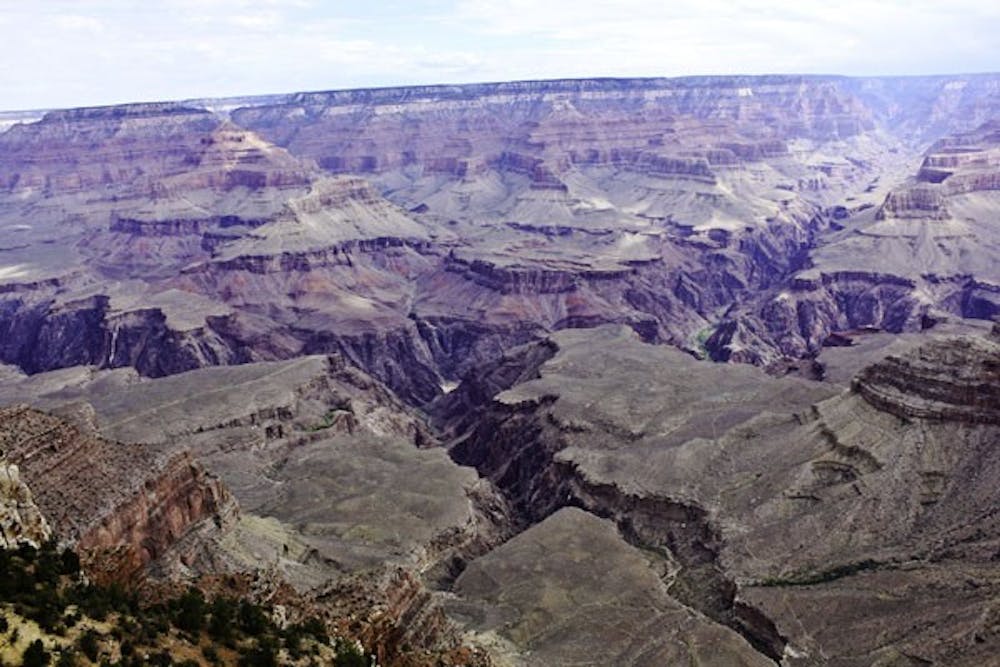 The Grand Canyon will be included in a number of state parks Arizona lawmakers are requesting to take from federal protection with Proposition 120. The state plans to use parts of the parks for mining and agricultural development. (Photo by Manikandan Vijayakumar)
The Grand Canyon will be included in a number of state parks Arizona lawmakers are requesting to take from federal protection with Proposition 120. The state plans to use parts of the parks for mining and agricultural development. (Photo by Manikandan Vijayakumar)Two Arizona lawmakers are proposing an initiative that will make the phrase, “The Grand Canyon State,” more than just a nickname.
Proposition 120, sponsored by Rep. Chester Crandall, R-Heber, and Sen. Sylvia Allen, R-Snowflake, would allow Arizona to take control of millions of acres of land, including the Grand Canyon, that are currently protected by the federal government.
If passed, the proposition will amend the state constitution to read, “Arizona declares its sovereign and exclusive authority and jurisdiction over the air, water, public lands, minerals, wildlife and other natural resources within its boundaries.”
Exceptions would be given to territory established as Indian reservations by the federal government and lands “over which jurisdiction has been ceded” as described in the constitution.
Law professor Paul Bender said the proposition is potentially dangerous and ultimately unconstitutional.
“It’s nonsense,” he said. “It’s saying we can just pick and choose what federal laws we want to obey, and that would be a partial secession. It’s what the Civil War was fought about.”
Proponents of the proposition say federal restrictions are costing the state millions of dollars of potential revenue in fields such as mining and agriculture, according to a report from ASU' Morrison Institute for Public Policy on public policy.
Allen said Arizona is at a disadvantage because it does not control all of the land within its borders as states east of the Mississippi River do, according to the report.
Supporters of Proposition 120 also question the legality of designating the lands as national parks, according to the Morrison Institute report.
However, Bender said if advocates of the referendum believe they have a legitimate argument, they should not amend the constitution, but instead work cooperatively with the federal government or take up their grievances in court.
“These are people who say they believe in law, but I can’t think of anything that would disobey the law more,” he said.
Alexandra Evans, president and co-founder of the Sun Devils for Wildlife Conservation, said the proposition is misguided because it would undermine environmental protection and conservation.
“The lawmakers proposing these laws are completely disregarding the very foundations of protectionism for natural wonders in America,” she said.
Evans, a sustainability junior, said mining around the canyon would inhibit its beauty and deter tourists from visiting.
“Although proponents of the bill argue mining would create more jobs and boost Arizona's economy, the new dangers of radioactivity and poisoned surface sites and groundwater will pose a danger to tourists,” she said.
Sustainability professor and scientist Ambika Adhikari said the lands should remain under federal protection because the federal government has more mechanisms in place to protect the environment.
“A real iconic attraction like the Grand Canyon will be better off under federal control, because it will ensure better environmental conditions in the long run,” he said.
Adhikari said the Grand Canyon needs stringent conservation laws because it houses biodiversity, wildlife and many other fragile and pristine natural resources.
Evans said desert species enjoy a specific climate not found in many parts of the world.
“If we destroy land in the Grand Canyon, these species will have nowhere to go,” she said.
If the proposition passes and the state were to attempt to use lands near the Grand Canyon for mining or other purposes, it would be in violation of several federal laws, including the Wildlife Conservation Act, Bender said.
“Are they going to go out and start killing endangered species and say, ‘Well, we manage the wildlife?’” he said. “They would be committing federal crimes, and they would be prosecuted for them.”
;
Reach the reporter at npmendo@asu.edu




